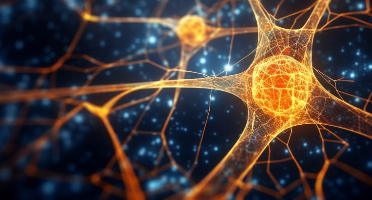Musonda Bemba
Project OwnerKey strengths include: * Transferable skills in AI, logic programming, and neural networks. * Collaborative mindset and ability to work within the PRIMUS ecosystem.
DEEP Connects Bold Ideas to Real World Change and build a better future together.
Coming Soon
This proposal aims to develop neuro-symbolic deep neural network (DNN) architectures that combine the experiential learning capabilities of Kolmogorov–Arnold Networks (KANs) with the symbolic logic representation power of PyNeuraLogic. The objective is to achieve higher-order reasoning, interpretability, and real-world applicability in AGI systems. The approach will be integrated with the PRIMUS/Hyperon framework, providing a hybrid system that balances statistical learning and symbolic inference.
This RFP invites proposals to explore and demonstrate the use of neural-symbolic deep neural networks (DNNs), such as PyNeuraLogic and Kolmogorov Arnold Networks (KANs), for experiential learning and/or higher-order reasoning. The goal is to investigate how these architectures can embed logic rules derived from experiential systems like AIRIS or user-supplied higher-order logic, and apply them to improve reasoning in graph neural networks (GNNs), LLMs, or other DNNs. Bids are expected to range from $40,000 - $100,000.
KANs on Steroids: Containerize KAN models with NVIDIA Triton for <200ms GPU-accelerated inference exposing gRPC endpoints for PyNeuraLogic handshake. Logic Bloodline: Build an idempotent REST->gRPC proxy layer (Envoy) that auto-retries on translation hiccups tagged with OpenTelemetry spans for distributed tracing. Data Firehose: Implement Apache Kafka topics for streaming KAN outputs (Avro-serialized) to PyNeuraLogic workers.
Production-grade Helm charts with HPA thresholds (CPU:60% Mem:80%) Terraform module for AWS Inferentia2 deployment (shows cost-performance tradeoffs) Annotated Swagger docs with x-kong-credential extensions for API gateway integration
$20,000 USD
≥99.9% API uptime under 50+ RPS sustained load for 72h (Grafana alerts on breaching 300ms p95 latency). Zero container restarts due to OOM during Kafka Avro serialization bursts (promql: container_memory_working_set_bytes{container="kan-grpc"} > 3GB).
Feedback Armor: Symbolic reasoning outcomes trigger Argo Workflows to retrain KANs via PyTorch Lightning with a CircuitBreakerException fallback to frozen models. Grounding Grpc: Protobuf schemas enforce type safety during neural→symbolic transformations rejecting malformed Datalog rules (>95% validation coverage).
Signed SBOMs (Syft+SPDX) for all container images OPA policies enforcing feedback loop SLAs (e.g. "symbolic corrections must propagate to KANs within 2s p99")
$15,000 USD
Feedback loops process 1K TPS with <1% circuit breaker tripping during chaos tests (Gremlin API blackholes validated). All symbolic corrections achieve sub-2s P99 propagation to KAN weights, verified by OpenTelemetry pyneuralogic_feedback_latency_seconds histograms.
Decision Auditing: Integrate OpenSearch to log neuro-symbolic choice rationales with differential privacy noise (ε=0.5). Zero-Touch Prod: Agent upgrades use Argo Rollouts with automated hypothesis testing (95% confidence interval on reward function deltas).
Istio Wasm plugin for runtime symbolic rule validation Tekton pipeline generating ONNX+PyNeuraLogic artifacts for Edge deployments
$15,000 USD
Agent rollbacks from failed neuro-symbolic states complete in <3m (LitmusChaos metrics tagged with argo_rollout_phase:retry). Differential privacy noise (ε=0.5) maintains 95% confidence intervals on reward deltas during live hypothesis testing (Prometheus hypothesis_test_confidence gauge).
Reviews & Ratings
Please create account or login to write a review and rate.
Check back later by refreshing the page.
© 2025 Deep Funding
Join the Discussion (0)
Please create account or login to post comments.